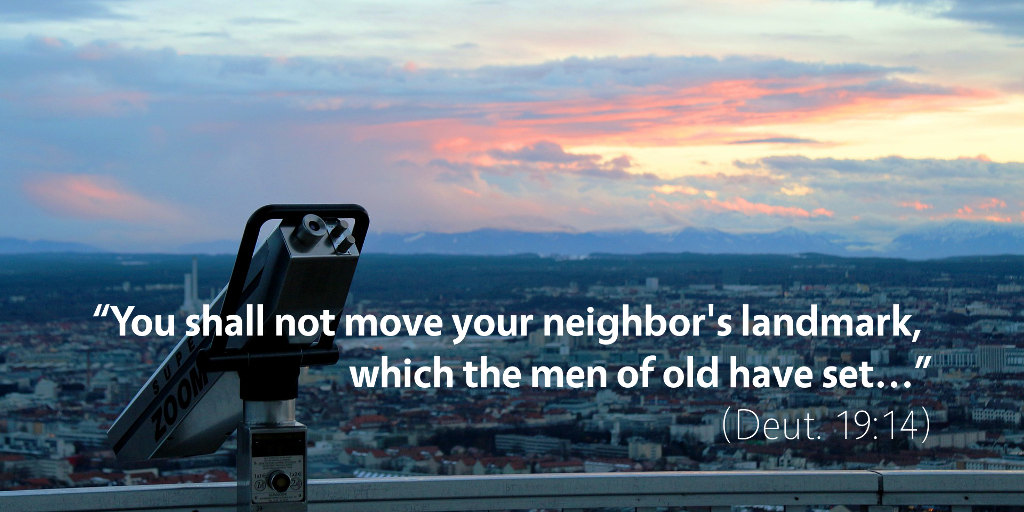Bible Readings for June 14th
Deuteronomy 19 | Psalm 106 | Isaiah 46 | Revelation 16
In Deuteronomy 19, Moses turns his attention to the civil laws that were written to govern daily life in Israel. The three laws in Deuteronomy 19 underscore three important principles for understanding God’s idea of civil justice.
The first law, regarding the cities of refuge, demonstrates the need for fair treatment of the accused. The people who could flee to the cities of refuge were those who had actually done something that caused the death of someone else. The specific example given in Deuteronomy 19:5—an axe head slipping from the handle and killing someone accidentally—does not suggest any kind of malice or even negligence. Instead, the cities of refuge were meant to protect those who kill someone else purely by accident.
But on the other hand, no murderer was allowed to use the cities of refuge to flee from justice (Deut. 19:11–13). If any tried, the elders of the murderer’s home city would forcibly return the murderer to be killed by the one in charge of avenging the blood of the person who had been murdered (Deut. 19:11–12). Justice means both that the innocent should be protected and that the guilty should be punished. To err on either side means to do away with real justice.
Second, Moses warns the people not to move any property boundary landmarks for the purpose of stealing someone else’s land (Deut. 19:14). Beyond the obvious prohibition against stealing, the theological significance of the Promised Land made moving property boundaries a severe crime of infringing upon someone else’s God-given inheritance. The Promised Land was bound up in the covenant promises that Yahweh made to Abram (cf. Gen. 12:7, 15:7–21, 17:8). This was not merely theft but a violation of Yahweh’s covenant itself.
Third, the laws concerning witnesses in Deuteronomy 19:15–21 establish a minimum threshold of witnesses necessary for convicting someone of a crime (Deut. 19:15). More than that, this section of the law prescribes that false witnesses should be punished at the same level as what the punishment would have been if their lies had successfully convicted the innocent person they had accused (Deut. 19:16–21). Moses insists that Israel should punish such false witnesses without pity.
Together, these three laws demonstrate that Yahweh is deeply concerned with the conduct of his people in their day-to-day lives. Many gods of various pagan religions could be appeased with the right blend of sacrifices, prayers, and offerings, allowing the worshipers to continue living the rest of their lives however they chose. Obedience to Yahweh, on the other hand, affects the way we live our entire lives, and not just what we do on Sunday.
In what areas of your day-to-day life might Yahweh’s desire for justice change the way you conduct yourself?
Podcast: Play in new window | Download (4.8MB) | Embed
Subscribe: Apple Podcasts | RSS | More

Scripture quotations are from The Holy Bible, English Standard Version copyright © 2001 by Crossway Bibles, a division of Good News Publishers. Used by permission. All rights reserved.


